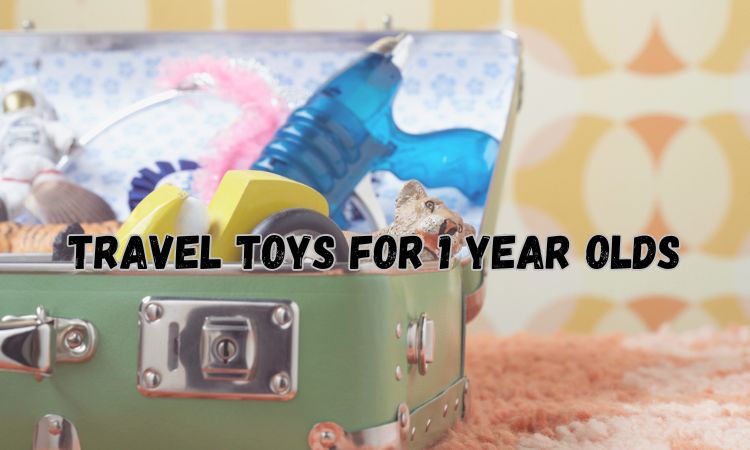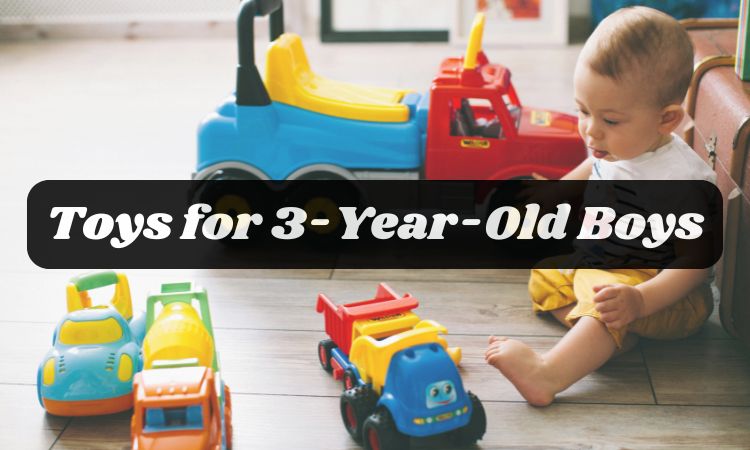If your newborn hasn’t pooped in a while, seems extra fussy, or strains during bowel movements, you’re probably wondering if it’s constipation—and what you can do to help. It’s tough seeing your baby uncomfortable, especially when you’re not sure what’s normal and what’s not. But don’t worry, there are safe, gentle ways to help your baby feel better quickly.
In this guide, we’ll walk you through how to tell if your newborn is constipated, what might be causing it, and most importantly—how to relieve constipation in newborns fast. We’ll also cover when it’s time to call your pediatrician and what common remedies you should avoid.

How to Tell If Your Newborn Is Constipated?
Knowing the difference between a newborn’s normal poop routine and true constipation helps you step in quickly. Most healthy babies can poop several times a day or skip a few days entirely; what matters more is stool texture, your baby’s comfort level, and any worrisome red-flag symptoms.
Here are the common signs of constipation:
1. Frequency outside the normal range
Typically, breastfed babies are less likely to get constipated, because your breast milk contains a natural laxative. They may pass soft stools anywhere from seven times a day to just once a week and still be perfectly normal.
That said, the answer to “Can breastfed newborns get constipated?” is still yes. If yours goes beyond that range and shows other signs below, think constipation.
Formula-fed babies usually poop one to four times daily. Missing more than two‒three days—especially with pellet-like stools—raises suspicion.
2. Hard or pellet-like stool
Tooth-paste-thick or softer stool is ideal. Pebble-sized, dry, or wide “adult-size” stools signal constipation.
3. Straining plus discomfort
Face turning red, prolonged grunting, back-arching, or stiff legs are common pushing efforts; these alone are normal unless the stool is hard or painful to pass.
4. Tummy and feeding cues
A tight, bloated belly, poor appetite, spitting up, or unusually few wet diapers can accompany constipation or dehydration.
What Causes Constipation in Newborns
Even though a newborn’s digestive tract is tiny, a lot of moving pieces have to work in perfect harmony for poop to make its way out. When one of those pieces slows down—or when something new is added to your baby’s diet—stool can become dry and difficult to pass. Below are the most common culprits:
Feeding factors
- Formula composition: If you’re wondering, can newborns get constipated from formula, the answer is yes. Higher casein and different fat blend in formula can be harder to digest than breast milk and may lead to constipation.
- Switching brands or breast to formula: A sudden switch from breast milk to formula (or between formula brands) can tighten things up until your baby’s gut adjusts.
- Too little fluid (dehydration): If bottles are mixed too thick, or if your baby isn’t taking in enough milk during growth spurts, the colon pulls extra water from stool, leaving it hard and dry.
A gut that’s still learning the ropes
During the first months, the nerves and muscles that coordinate a bowel movement are immature. Most newborn constipation is “functional”—there’s no disease behind it, just a gut that’s practicing.
Supplements and medications
High-dose iron drops or multivitamins (45 mg of iron or more per day) commonly firm up stools; certain antihistamines, pain relievers, or other medicines can slow the bowel as well. If you’re asking, do gas drops cause constipation in newborns, the answer is it might, just in rare cases. Always ask your pediatrician before starting or stopping any medication.
Food allergies and intolerances
An allergy to cow’s-milk protein—whether that protein comes through formula or your own diet while breastfeeding—can show up as constipation, mixed loose/firm stools, or even small streaks of blood.
Underlying medical conditions (rare)
Conditions such as Hirschsprung disease (where nerve cells are missing from part of the colon) or metabolic issues like congenital hypothyroidism can cause severe, persistent constipation from birth.
Life and routine changes
Wondering what causes constipation in newborns that are breastfed? Travel, temperature swings, illnesses, or simply fewer opportunities to move their legs can all nudge a newborn’s rhythm off track for a few days. Once the routine settles—and you use gentle relieving strategies—their bowels usually follow suit.
How to Treat Constipation in Newborns Fast
If you’re asking, what to do if my newborn is constipated, you want gentle fixes that get results quickly without risking irritation or over-treating. Below are some safe methods that truly work:
1. Top up fluids the baby-safe way
For formula-fed babies, check the recipe first.
Concentrated formula or missed feeds quickly dries out stool, so review the scoop-to-water ratio and offer the next bottle on time.
Offer extra fluids
Here’s what to give a newborn for constipation to top up fluids:
- For breast-fed babies, offer extra breastfeeds. Extra breast-milk provides both fluid and a natural laxative effect.
- For formula-fed babies, you can offer small sips (½–1 oz) of cooled, previously boiled water between bottles, if your pediatrician okays it.
2. Put tiny muscles to work
- Lay your baby on their back and pump the legs in a gentle “bicycle” motion for 30 seconds at a time; repeat every few hours. This massages the colon from the outside in.
- Follow with a clockwise tummy massage (fingertips circling just below the ribs, down the left side, then across)—about the size of a quarter—to stimulate peristalsis.
- Finish with a warm bath; heat relaxes the anal sphincter, so stool slides out more easily.
3. Use gravity and posture
Hold your baby upright with knees tucked toward the chest after feeds for a few minutes. This “squat” position straightens the rectum and often triggers a bowel movement within the next hour.
4. Safe, tiny taste of fruit juice—only if baby is ≥ 1 month
If prunes or prune juice work wonders for your constipation, you might be wondering, how much prune juice for newborn constipation? If movement and warmth haven’t done the trick by day two, your pediatrician may suggest 1 oz of 100 % apple, pear, or prune juice per month of age (max 4 oz/day). The natural sorbitol pulls water into the colon and works in 4–8 hours.
Do note that the American Academy of Pediatrics (AAP) otherwise discourages juice under 1 year, so use this tool only for short-term constipation and stop once stools soften.
5. Tweak feeds if constipation keeps coming back
- Formula-fed? Ask about switching to a partially hydrolyzed or low-lactose formula; many babies poop more easily within a week of the change.
- Breast-feeding parent? Consider a two-week dairy “vacation” if your pediatrician suspects cow’s-milk protein sensitivity.
6. Medication is the backup plan, not the first step
If you’re asking, what can I give my newborn for constipation, always remember that medication is the backup plan, not the first step. A single infant glycerin suppository can melt and trigger a bowel movement within minutes but should be used only under medical guidance.
Professional guidelines advise avoiding routine rectal stimulants or enemas in newborns; glycerin is for rare, stubborn cases. Skip mineral oil, stimulant laxatives, and herbal teas in babies as well—they can irritate the gut or be unsafe
7. Soothe baby and create a calm vibe
Watching your newborn strain can be heartbreaking; a relaxed baby pushes more effectively. Try rocking, offered pacifiers, or soft background audio. One parent-loved helper is the Alilo Smarty Bunny baby rattle—a bunny-shaped rattle with glowing silicone ears and 66 nature sounds, lullabies, and nursery rhymes.
Shake it gently in time with the bicycle-leg exercise or let its 30-minute sleep timer play while baby enjoys a warm bath. The soothing light and gentle sounds can dial down fussiness, making it easier for your little one to release that stubborn stool. And the toy keeps earning its keep long after constipation days by boosting fine-motor skills and hand-eye coordination.

When to Call the Pediatrician
Your baby should bounce back quickly once stools soften, so think of the signs below as red lights that need a professional check-in.
Act Now (ER or same-day call):
- Green (bile-colored) vomit, or repeated vomiting with a swollen belly
- Fever and no poop or hard pellets
- No meconium in the first 24 hrs or no stool at all by 48 hrs
- Sudden extreme lethargy or refusal to feed
- Severe abdominal distension with tenderness
Call within 24 hours:
- Your baby under 2 months still constipated after 24–48 hours of home care measures
- Any rectal bleeding or blood-streaked stool
- Persistent, painful straining that lasts more than 1 hour
- Extreme fussiness
- Weight loss or poor growth trends
- Hard mass felt in the abdomen or ribbon-like stools (could signal an anatomic problem)
What Not to Do When Trying to Relieve Newborn Constipation
Skip the shortcuts below; they can delay real relief or cause new problems.
- Don’t reach for mineral oil, stimulant laxatives, or home enemas. These products can irritate a newborn’s gut and are never first-line treatments.
- Avoid honey or corn syrup in babies under 12 months. Both can harbor bacteria that cause infant botulism.
- Never “water-down” or “double-strength” a formula bottle. Too little water risks dehydration; too much can trigger dangerous water intoxication and nutritional deficits.
- Hold off on extra plain water before 6 months unless your doctor okays it. Young infants get all the fluid they need from breast milk or correctly mixed formula.
- Skip unpasteurized juices, herbal teas, stimulant laxatives, and other over-the-counter “detox” drops. They offer no proven benefit and may introduce germs or unsafe compounds.
- Limit fruit juice “quick fixes” to tiny, doctor-directed amounts (usually ≤ 1 oz/month of age). Overdoing juice can cause gas, diaper rash, and excess sugar intake.
- Don’t do repeated rectal stimulation with thermometers or cotton swabs. Frequent probing can cause small tears and make a baby dependent on stimulation to poop. If one gentle try doesn’t work, call your pediatrician.
- Steer clear of “early solids” like rice cereal to bulk up stool. Solids started before 4–6 months raise choking and allergy risks and can worsen constipation.
- Skip drastic formula brand-hopping without guidance. Some changes help, but switching every few days can upset your baby’s gut.
Conclusion
Dealing with newborn constipation can be worrying, but once you know what signs to look for and what steps to take, it becomes a lot easier to handle. Whether it’s gently massaging your baby’s tummy, giving them a warm bath, or moving their legs in bicycle motion—there are various proven methods on how to relieve constipation in newborns fast. And remember—if something doesn’t feel right or if the constipation sticks around, your pediatrician is just a call away. You’ve got this!
FAQ
How can I get my newborn unconstipated fast?
If your little one is constipated, a gentle tummy massage, warm baths, and bicycle leg movements can often help get things moving. Always consult your pediatrician for personalized advice, but these simple techniques can offer quick relief.
What position helps newborns poop?
Holding your newborn in an upright position, such as sitting on your lap or over your shoulder, can help with bowel movements. Gravity assists in easing the discomfort, making it easier for your baby to pass stools.
Can I give my 2-week-old baby water for constipation?
Giving water to a 2-week-old is not recommended as it can disrupt their delicate balance of nutrients. Breast milk and formula provide all the hydration they need. For concerns about constipation, it’s best to talk to your pediatrician for safe solutions.
What can a mother eat to help a baby poop?
For most breast-fed infants, your diet has little effect on their bowel habits. Most fiber stays in your gut and never reaches breast milk. Instead, focus on balanced nutrition and plenty of fluids to keep your own digestion regular. Eliminating cow’s-milk protein (dairy) for 2 weeks only if your pediatrician suspects an allergy; this is the one food group research consistently links to infant constipation issues.







Share and get 5% off!
Simply share this product on one of the following social networks and you will unlock 15% off!